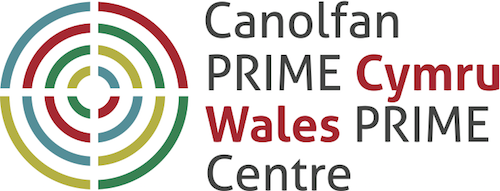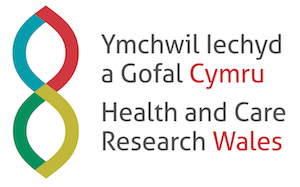News
 Participate in a research study about social well-being
Participate in a research study about social well-being
17 July 2020
Researchers at the University of South Wales and the Wales School for Social Prescribing Research (WSSPR)are running a study to gather insights into what makes up a person’s social world and what aspects of this influence their well-being.
We would like to invite you to engage in three separate online activities over the next six weeks. The purpose of the exercise is to move towards a consensus position on what makes up a person’s social world. We would like to include people from across the UK and internationally to take part.
The study will be run online using software called Group Wisdom and it will involve a brainstorming exercise, followed by grouping and rating activities all related to the topic. Each activity will last no more than 20-30 minutes and you can start and come back to the activity when you have some free time.
Action
Please indicate your interest in participating in this study by returning this e-mail to wsspr@southwales.ac.uk. A member of the study team will then contact you with further information and send a consent form for you to complete. Once this is returned to them, they will provide you with a link to the software and a unique username and password.
We know how busy and challenging things are at the moment, but hope that you might be able to find a short amount of time to help us develop this concept.
Thank you in anticipation of your participation, it is very much appreciated. If you have any queries please don't hesitate to contact the research team: wsspr@southwales.ac.uk.
 Entries now open: Public Involvement Achievement Award 2020
Entries now open: Public Involvement Achievement Award 2020
Application deadline: 14 August 2020
Entries are now invited for the 2020 Health and Care Research Wales Public Involvement Achievement Award.
For the fourth year running we are looking to present an award to identify, promote, and celebrate the excellent public involvement taking place across the Health and Care Research Wales infrastructure.
 Blog post by Prof Ruth Northway:Our social networks matter
Blog post by Prof Ruth Northway:Our social networks matter
17 June 2020
Ruth Northway, professor of Learning Disability Nursing at Universiry of South Wales, looks at what the current restrictions on movement means for people with learning disabilities and their social networks http://orlo.uk/5DbKd
 Decision-making during pandemics and other serious illness
Decision-making during pandemics and other serious illness
8 June 2020
Dr Victoria Shepherd, Research Fellow at Centre for Trials Research, Cardiff University has written an editorial on Decision-making during pandemics and other serious illness, featured in 'Geriatrics, Gerontology and Aging', the scientific publication of the Brazilian Society of Geriatrics and Gerontology (SBGG).
At a time of COVID-19 impact on older people around the world, Victoria highlights the issues around decision-making, proposing that 'early discussions between older people, their families and care providers about their priorities and preferences are needed now more than ever'.
Read the editorial at: https://tinyurl.com/ycpfofv6
 New handbook demonstrates the UK Standards for Public Involvement in action
New handbook demonstrates the UK Standards for Public Involvement in action
4 June 2020
A new handbook has been published sharing the stories of organisations that tested and implemented the UK Standards for Public Involvement in their research as part of a pilot programme. Included is the Centre for Ageing and Dementia Research, who used the ‘Working together’ standard to help develop a volunteering guide.
Further information: https://www.healthandcareresearch.gov.wales/news/new-standards-handbook/
 Online submission of amendments and amendment tool now live
Online submission of amendments and amendment tool now live
2 June 2020
Health and Care Research Wales' new online submission of amendments and amendment tool have gone live across the UK (Tuesday 2 June 2020). These new processes for handling amendments are part of our ongoing programme to improve services for applicants.
Link: https://www.healthandcareresearch.gov.wales/news/new-submission-of-amendments-and-amendments-tool/
 Social care workforce survey
Social care workforce survey
Ulster University is calling all social care workers and social workers working during COVID-19 to take a survey on their experiences working on the frontline during a pandemic.
Responses to the survey will help develop a study exploring working on the frontline under COVID-19, which will inform employers and policymakers about what the workforce needs to cope during a pandemic.
Survey link: https://niscc.info/news/333-workforce-survey
 Submit an abstract now - reopened for presentation abstracts!
Submit an abstract now - reopened for presentation abstracts!
4 June 2020
We’d like to thank everyone who has already submitted an abstract for the conference. The conference planning committee has reviewed the abstracts submitted and would like to invite further abstract submissions for the oral presentations. Submissions for oral presentations should be mindful of the theme of the conference: Making a difference: the impact of health and social care research, and the committee are particularly looking for abstracts on research topics covering:
- social care
- NHS
- lessons learned from COVID-19
The call for abstracts for posters and workshops has now closed.
You can still submit an abstract to present at the parallel sessions until 19 June 2020.
 Can we better join support and needs in response to COVID-19?
Can we better join support and needs in response to COVID-19?
The COVID Response Map Wales has been designed to help identify areas where there are more people who may be more vulnerable to COVID-19, where there is potentially less community support.
Whilst the map does not capture all community support, nor does it imply that all vulnerable groups are in need of support, it can help inform the public, community groups and public sector on which areas might benefit from extra support.
It also provides the links to local community groups identified helping to raise awareness of the support available locally.
Visit: www.covidresponsemap.wales
 Full funded PhD studentship opportunity at Aberystwyth University
Full funded PhD studentship opportunity at Aberystwyth University
A person-centred frailty monitoring and management pathway for older adults in a rural GP surgery
Frailty is a health status that increases the risk and impact of adverse events and makes individuals more vulnerable to quick and sudden declines in functional ability, hospitalisation and death. The importance of frailty is increasingly recognized, and although frailty is not currently a clinical diagnosis, it seems likely to become one in the next 10 years.
The PhD student is to support development and evaluation of a person-centred frailty monitoring and management pathway for older adults in a rural GP surgery, similar to current practice for obesity and diabetes management. Firstly, appropriate biomarkers of frailty (urine, blood, physical assessments, cognitive assessments, etc.) will be established. Secondly, its feasibility for implementation in a rural GP surgery will be determined. Finally, the feasibility of personalised interventions to prevent and reverse frailty will be evaluated in a rural GP surgery.
The PhD student will be supervised by members of the Well-being and health Assessment Research Unit (www.waru.org.uk), who work jointly with local GP surgeries in Ceredigion, MidWales, United Kingdom. The supervision team is well placed to provide the PhD student with experiences of working in academia alongside the practical experience of doing primary care based research.
Candidates for the PhD Studentship should demonstrate outstanding qualities in a relevant discipline. They must demonstrate outstanding academic potential as measured normally by either a 1st class honours degree (or equivalent) or a Master’s degree with distinction (or equivalent).
Those awarded a Margaret Wooloff Scholarship will receive a grant for up to three years which will cover their tuition fees up to the UK/EU rate of £4,407 per annum (2019/2020 rate). A maintenance allowance of approximately £15,009 per annum and access to a travel and conference fund (max. £500 per annum) will also be provided. Scholarships commence in September 2020.
The deadline for applications is 1 July 2020. Please contact Dr Marco Arkesteijn via maa36@aber.ac.uk initially for more information and how to apply.
 New report on the nursing and midwifery community in Wales
New report on the nursing and midwifery community in Wales
3 June 2020
Public Health Wales has published its new report Towards a healthy and sustainable workforce for the future: The current health and wellbeing of the nursing and midwifery workforce in Wales.
The report highlights the health and wellbeing of the nursing and midwifery community in Wales, in 2019. The findings draw from an online survey of 1,642 nurses, midwives and healthcare support workers, approximately 5% of the NHS workforce in Wales, conducted before the current COVID-19 pandemic.
Find out more
 COVID-19 research in black, Asian and minority ethnic communities
COVID-19 research in black, Asian and minority ethnic communities
21 May 2020
People from all minority ethnic groups (apart from Chinese and mixed-race groups) are at greater risk of becoming very sick with COVID-19 than the white population in the UK. In particular, black men and women are nearly twice as likely as white people to die from COVID-19. We need to understand why and tackle this urgently through health research.
Visit the COVID-19 research in black, Asian and minority ethnic communities pages on Be Part of Research to learn how to help encourage all BME communities to participate in COVID-19 studies.
 Stroke Research Priority Setting Partnership
Stroke Research Priority Setting Partnership
20 May 2020
Are there questions about stroke that you think are important for research to try to answer? Your questions could help to improve treatment, rehabilitation and prevention in the future.
Complete the Stroke Association web survey to have your say.
 £4.8M funding announced for primary and emergency care research in Wales
£4.8M funding announced for primary and emergency care research in Wales
5 May 2020
The Welsh Government is to invest £4.85m over the next five years on research into primary and emergency care in Wales, which will involve Swansea University.
The funding, through Health and Care Research Wales, will support large-scale, international quality research at Prime Centre Wales, an all-Wales Centre co-led by Swansea, Cardiff and Bangor universities and the University of South Wales.
The Centre has adapted the focus of its research to help tackle the unprecedented challenges of Covid-19, including launching projects to:
- Look at the effect of “shielding letters” as a public health intervention, led by Professor Helen Snooks of Swansea University
- Examine the impact of delayed diagnoses of cancer, a project led by Professor Kate Brain, a professor of health psychology from Cardiff University’s School of Medicine
- Fast track the implementation of the CARiAD intervention for home-based palliative care, teaching lay carers to administer injections at home to a dying loved one, led by Professor Clare Wilkinson and Dr Marlise Poolman at Bangor University and Professor Annmarie Nelson and the Marie Curie Research Palliative Care Research Centre at Cardiff University
- Look at the effects of coronavirus on all stages of pregnancy, a project led by Julia Townson of Cardiff University’s Centre for Trials Research
- Analyse public experiences of the pandemic through a UK-wide survey, a joint project between Cardiff University and Cardiff Metropolitan University
 CF PROSPER: Making choices about having children when living with Cystic Fibrosis
CF PROSPER: Making choices about having children when living with Cystic Fibrosis
8 May 2020
The research team are interested in women’s experiences about making decisions about having children.
Please take part or share: https://cmett.onlinesurveys.ac.uk/cf-prosper-making-choices-about-having-children-when-livi-2
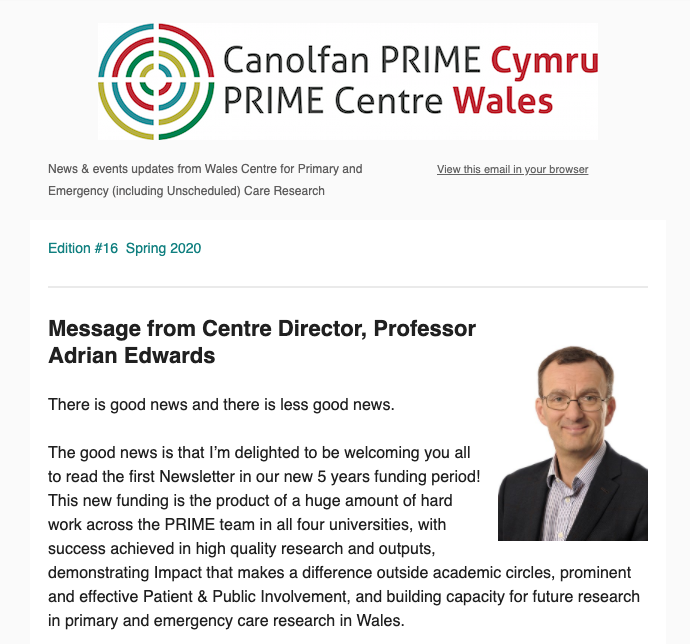 PRIME e-news bulletin - Spring 2020
PRIME e-news bulletin - Spring 2020
4 May 2020
Read our message from Centre Director, Professor Adrian Edwards announcing our new 5 years if funding, and find out what the PRIME Centre Wales research team have been doing to support the effort against CORID-19 in the Spring edition of the e-news bulletin.
Read the bulletin here: https://mailchi.mp/0439b08917f7/prime-centre-wales-e-news-bulletin-spring
Sign up to receive our quarterly e-news bulletin here: https://us12.list-manage.com/subscribe?u=f48544e8b5a7717edc3af7fc0&id=ccb0f0648f
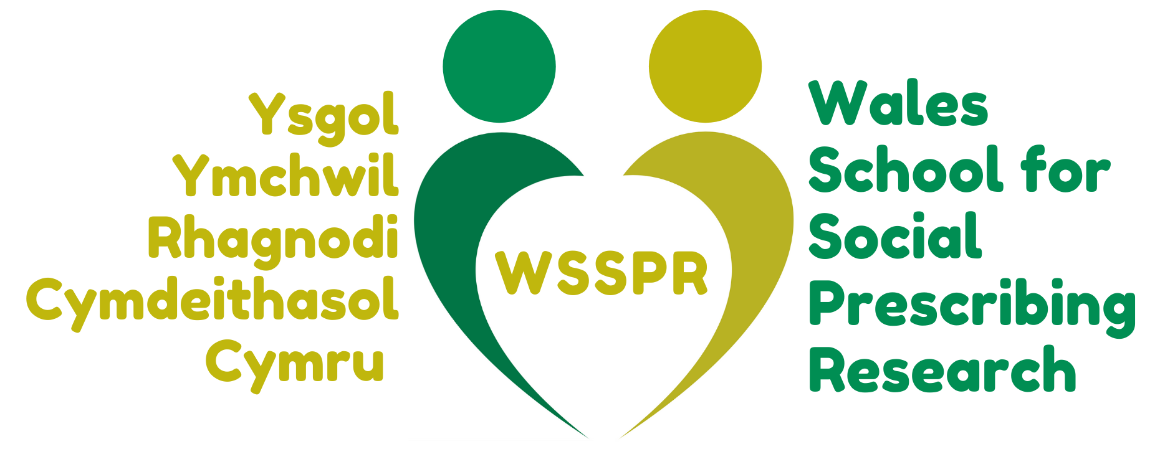 Social Prescribing: an alternative approach to reduce the reliance on the NHS and social care services in Wales
Social Prescribing: an alternative approach to reduce the reliance on the NHS and social care services in Wales
23 April 2020
The Wales School for Social Prescribing Research (WSSPR) was officially launched at the start of April.
Led by Director Professor Carolyn Wallace of the University of South Wales (USW) and co-chaired by Dr Sally Rees at the Wales Council for Voluntary Action (WCVA), this virtual school based within PRIME Centre Wales aims to develop a social prescribing evaluation methodology. It builds on the work previously completed by the Wales Social Prescribing Research Network (WSPRN). The network itself has won more than £700k in funding bids to date.
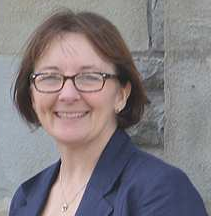 Professor Wallace comments:
Professor Wallace comments:
"The rapidly growing enthusiasm for social prescribing and its potential to influence delivery of services in primary and community care have exceeded expectation, but the development of its evidence base and robust quality standards for evaluation have trailed,”
“There is variable evidence to suggest that social prescribing reduces the footfall to GP surgeries of between 15% to 28%. The evidence varies so much because the impact of social prescribing depends on the type of model used, the link workers and their backgrounds, the locality, and the assets available within the community.
“Social prescribing is incredibly important. It helps people connect with their community and improve their well-being.”
What is social prescribing?
Social prescribing (SP) is a way of meeting the social, emotional and practical needs of people through services in the voluntary and community sector, rather than relying on health and social care services to provide a solution. People may be referred to a SP scheme for many reasons, such as bereavement, debt induced anxiety or social isolation.
SP schemes use various activities that are typically offered by voluntary and community sector organisations. Examples include volunteering, arts activities, group learning, gardening, befriending, cookery, healthy eating advice, and a range of sports. Read more.
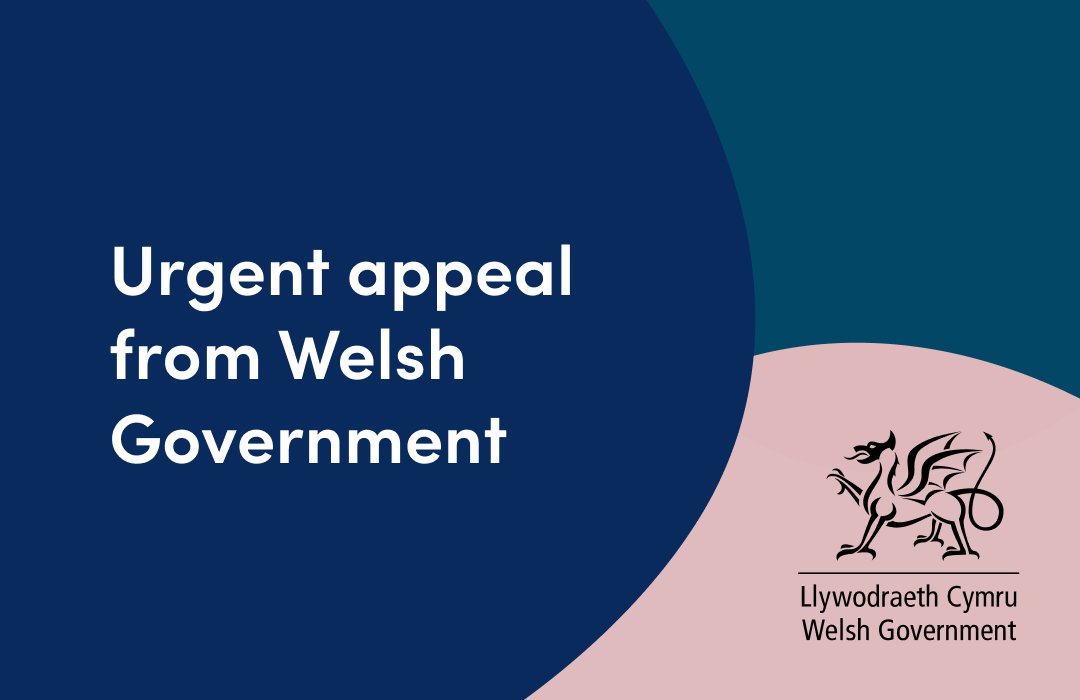 New app created to track coronavirus in Wales
New app created to track coronavirus in Wales
17 April 2020
A new app has been created to help the NHS keep track of the spread of coronavirus in Wales. First Minister Mark Drakeford is appealing for people to log their daily symptoms, even if they are displaying no symptoms, on the app to help build a clearer picture of how the virus is affecting Wales.
Scientists from Kings College London and the Secure Anonymised Information Linkage (SAIL) Databank at Swansea University will then work with the Welsh Government to analyse the data. Read Mark Drakeford's full statement on the app's website.
 Launch of the Community Pharmacy Contractors COVID-19 Toolkit
Launch of the Community Pharmacy Contractors COVID-19 Toolkit
Strategic Programme for Primary Care
April 2020
To support the retention of safe, efficient, and accessible pharmaceutical services, the Welsh Government have outlined a set of five key objectives:
- To protect the health and wellbeing of all pharmacy staff;
- To ensure community pharmacies continue to be available to dispense and supply repeat and acute prescriptions, with if necessary a reduction in hours pharmacies are open to the public;
- To support a move away from demand-led to more planned ways of working particularly in respect of repeat prescriptions;
- To reduce footfall in community pharmacies both to support social-distancing and reduce pressure on pharmacy teams; and
- To support the public to self-care, through improved access to online information or through telephone advice and medicines from their community pharmacist
Work has been underway with partners across Government, Health Boards, Community Pharmacy Wales, the Royal Pharmaceutical Society, along with other key stakeholders to develop a range of measures to support meeting these objectives.
There is an expectation on community pharmacies, practices and clusters to work collaboratively in establishing the best patient and prescription journey, especially for symptomatic and COVID-19 positive patients and those requiring urgent palliative care medicines.
This toolkit compiles information that has so far been released in relation to each of these objectives. It also offers guidance and supporting information to enable the continuity of services by community pharmacies at this unprecedented time of pressure. Practical tips and templates have been included to help contractors navigate their way through the process.
Download the toolkit here: Community Pharmacy Contractor COVID-19 Toolkit.pdf
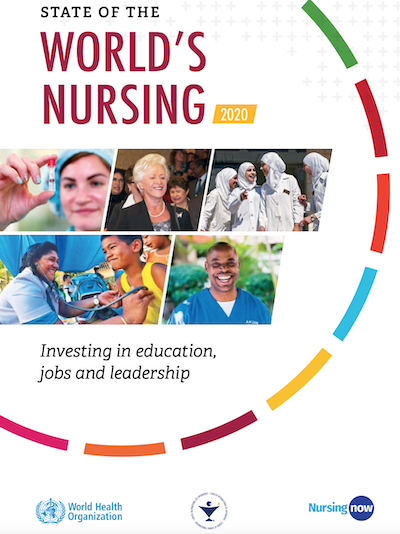 State of the world's nursing report
State of the world's nursing report
8 April 2020
Joyce Kenkre, Professor of Primary Care at the University of South Wales and Associate Director of PRIME, is a contributor to the first State of the world’s nursing report release today, entitled: 'State of the world's nursing: Investing in education, jobs and leadership'.
Nurses are critical to deliver on the promise of “leaving no one behind” and the global effort to achieve the Sustainable Development Goals (SDGs). They make a central contribution to national and global targets related to universal health coverage, noncommunicable diseases, including mental health, emergency preparedness and response, patient safety, and the delivery of integrated, people-centred care, amongst others.
This State of the world’s nursing report, developed by the World Health Organization (WHO) in partnership with the International Council of Nurses and the global Nursing Now campaign provides a compelling case on the value of the nursing workforce globally.
Read the report here: https://www.nursingnow.org/state-of-the-worlds-nursing/?doing_wp_cron=1589299782.8114180564880371093750
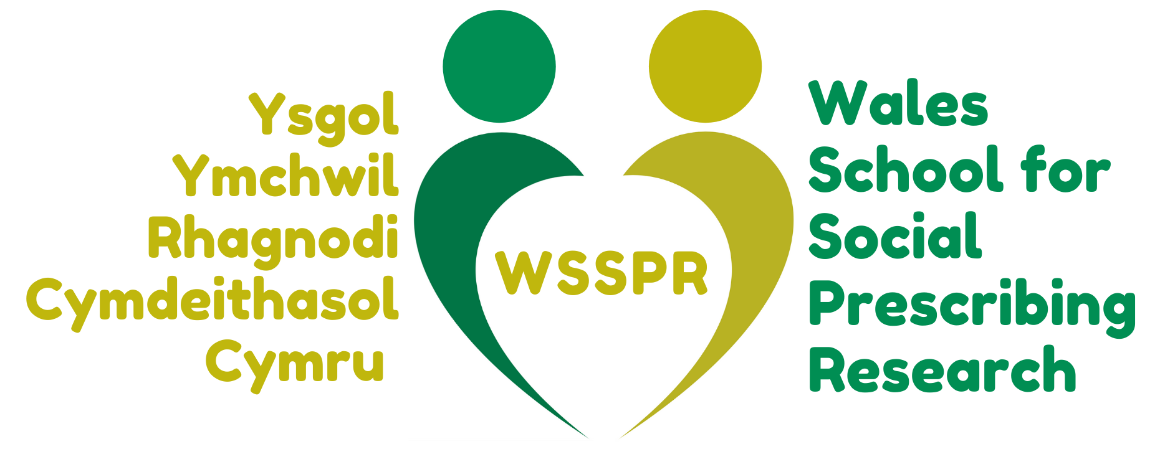 Welcome to WSSPR
Welcome to WSSPR
We are pleased to officially launch the Wales School for Social Prescribing Research, funded by Health and Care Research Wales and nested within PRIME Centre Wales.
2 April 2020
WSSPR is a virtual all-Wales school which aims to develop a social prescribing evaluation methodology, building on the work previously completed by the Wales Social Prescribing Research Network (WSPRN).
WSPRN is a network of researchers and practitioners in Wales who are interested in social prescribing research, which sits inside WSSPR.
Please head over to our new website to learn more about us, our current projects and our research network - www.wsspr.wales.
You can also follow us on Twitter @WSSPRCymru or get in touch with us via. e-mail - wsspr@southwales.ac.uk.
We look forward to working with you in the future.
Professor Carolyn Wallace
Director of WSSPR
 Have your say – Evaluation of the Social Services and Well-being (Wales) Act,
Have your say – Evaluation of the Social Services and Well-being (Wales) Act,
March 2020
Please help with this evaluation of the Social Services & Well-being (Wales) Act 2014. What has changed for you?
The Welsh Government has commissioned a partnership between leading academics across four universities in Wales and expert advisers to deliver the evaluation of the ground-breaking Social Services and Well-being (Wales) Act 2014.
We are currently undertaking the process evaluation phase of the study which aims to understand how the Social Services and Well-being Act has been/is being implemented and delivered at a national, regional and local level. It will consider the role that the wide range of organisations that are impacted by the Act have had in this implementation, and identify factors that have helped or hindered its effectiveness.
 Blog post from Megan Elliott: What influences men to take part in weight loss programs?
Blog post from Megan Elliott: What influences men to take part in weight loss programs?
25 February 2020
Men tend not to take part in weight loss programs but few studies explore why this may be. In this blog post, the lead author of a new qualitative study published today in BMC Public Health discusses her team's research which seeks to answer this question.
However, engagement of men in these weight loss programs is low. Men make up 11-25% of people who go to Counterweight, Weight Watchers, Slimming World and Rosemary Conley Diet and Fitness Clubs. With a greater prevalence overweight men compared to women in the UK, and rising obesity rates globally, this lack of engagement is concerning.
Our study, published in BMC Public Health, sought to understand what influences the engagement of men in weight loss services.
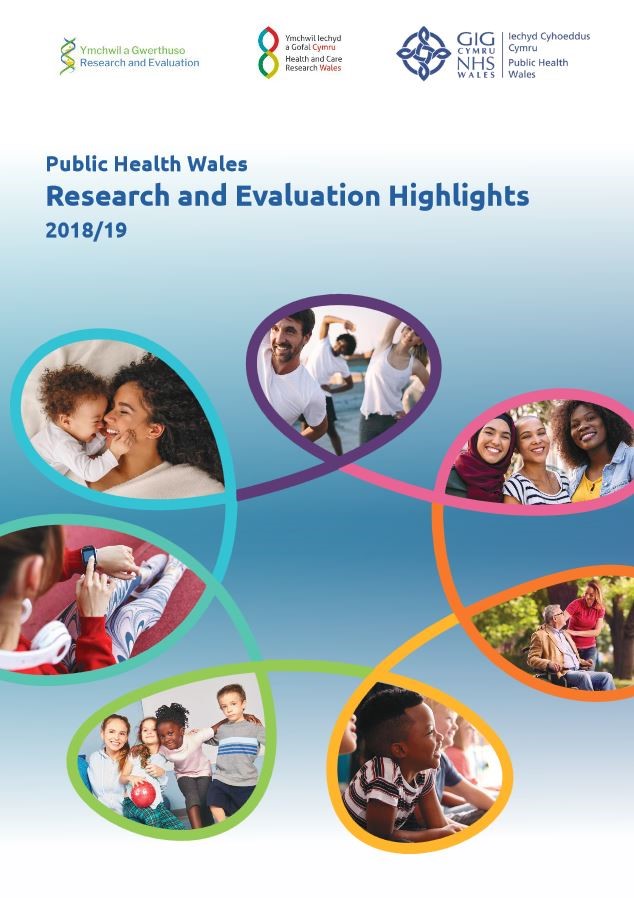 PHW Research Evaluation Highlights
PHW Research Evaluation Highlights
Public Health Wales has published its latest annual Research and Evaluation Highlights report. The report makes for impressive reading, covering our involvement in innovative research and evaluation with significant impact on public health, policy and practice, both nationally and internationally.
Read the report at: https://phw.nhs.wales/services-and-teams/knowledge-directorate/research-and-evaluation/publications/public-health-wales-research-and-evaluation-highlights-2018-19/
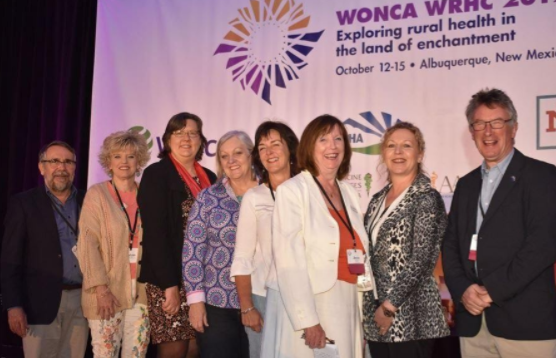 Blog post from Professor Joyce Kenkre
Blog post from Professor Joyce Kenkre
Landmark declaration made by Rural WONCA and commitment of support for nurses and midwives worldwide to advance the goals of Nursing Now
29 January 2020
If we are to achieve Universal Health Coverage (UHC) in the foreseeable future, it will be the rural and isolated parts of the world that will provide us with the greatest challenge. Although just under 50% of the global population live in rural areas, only 34% of the world’s nurses and 24% of the world’s doctors work in rural areas. 56% of the globe’s rural population do not have access to health whereas only 22% of those living in towns and cities are denied care.
The Declaration of Astana emphasised the importance of primary health care in meeting the needs of those who are currently denied health care. The declaration went on to describe the primary care workforce as being multi-professional and multidisciplinary. The future of rural health care will be in the development of dynamic teams of professionals working together and bringing their different skills and knowledge to meet the needs of their patients and communities.
The 16th WONCA World Rural Health Conference in Albuquerque, New Mexico (USA) on the 15th October 2019 unanimously agreed a statement and a commitment to the importance of nursing in rural health care and to Nursing Now 2020.
Read the full post on the Nursing Now website
 Award congratulations and things to do in 2019
Award congratulations and things to do in 2019
02 January 2019
Congratulations to Dr David Foster
We are delighted to congratulate our Chair of Trustees Dr David Foster on the award of OBE for services to nursing and midwifery and as a charity trustee. A very well-deserved award.
Save the date
Developing person-centred, safe and effective cultures through practice development
Next school 22-26 July 2019
We are pleased to confirm we will be hosting our highly-rated practice development school again this year. And happily, we are able to hold the prices at 2018 levels (early bird is £1,050 until 31 March 2019 and then £1,200 inclusive). Email debbie.warren@fons.org to be put on the mailing list for the brochure and registration form (available mid-January). More information is available on the website.
Why publish with the International Practice Development Journal?
The IPDJ aims to facilitate dialogue about the contribution that person-centred and participatory ways of working and researching; practice development; and related fields of inquiring, improving and transforming practices and cultures of care can make to health and social care services and academia. It is also a friendly and supportive place to publish. Recent authors say:
- ‘You are encouraged to be creative in your thinking, writing and presentation’
- ‘Help on hand for first time publication authors’
- ‘I was very happy about the publishing process, and received helpful comments from the reviewers’
- ‘a fantastic resource for publishing innovative, creative, systematic and rigorous articles that advance the development and improvement of practice’
Why not explore our current issue or our top 10 downloaded papers?
Submissions are welcome at any time. The deadline for publication in Vol 9, No 1 (May 2019) is 16 January 2019; however, there may be flexibility for Critical Reflection on Practice Development articles (please contact us). If you are interested in publishing with the IPDJ (including Ideas and Influences article or Commentaries) please visit the website and email ipdj@fons.org for more information.
The RCN International Nursing Research Conference 2019
Call for abstracts is now open and closes 11 April 2019. For more details on the criteria and how to submit an abstract, visit the RCN website.



